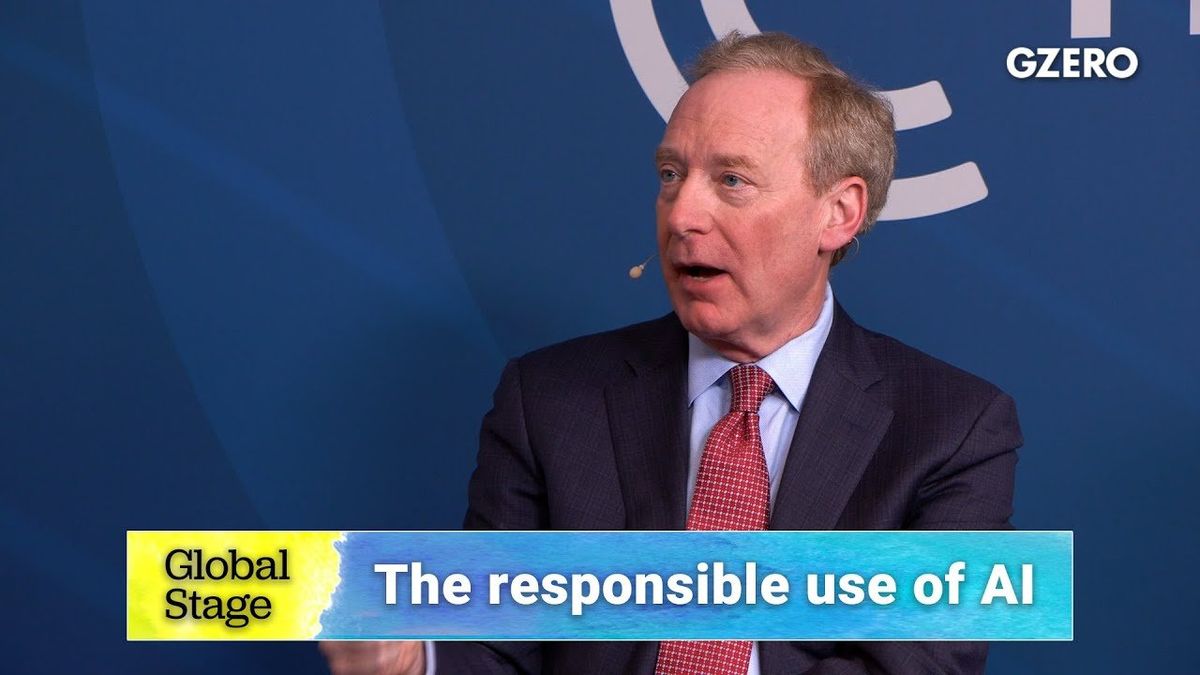AI is having a giant moment of growth, as is the ability for actors to use it nefariously. In an uncertain global environment, how can the US outpace challenges in cyberspace?
“One of the things that I find just fascinating about the development of AI…it's actually an area where if you take the problems seriously and you have an engineering team that's willing and prepared to work on a moment's notice, you can correct the problems far faster than you can solve most problems in life,” said Microsoft Vice Chair and President Brad Smith at this year’s Munich Security Conference during aGlobal Stage livestream conversation, hosted by GZERO in partnership with Microsoft.
The early leads in the race for the future of AI, he adds, are in the US private sector and the Chinese public sector, and the world’s democracies are setting the right role model in creating international norms for the responsible use of AI, but must stay the course in doing so.
Watch the full Global Stage conversation from Munich here: Is there a path ahead for peace in Ukraine?
- Is there a path ahead for peace in Ukraine? - GZERO Media ›
- Brad Smith: Russia's war in Ukraine started on Feb 23 in cyberspace ›
- Can we control AI before it controls us? ›
- Podcast: The future of artificial intelligence with tech CEO Kai-Fu Lee ›
- Is life better than ever for the human race? - GZERO Media ›
- Fooled by cyber criminals: The humanitarian CEO scammed by hackers - GZERO Media ›

















